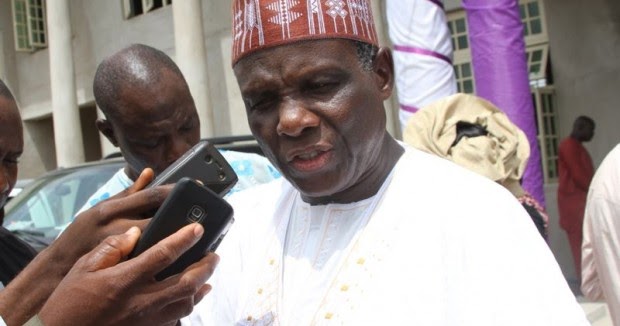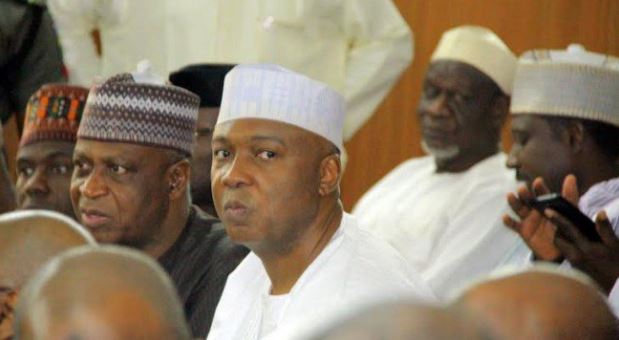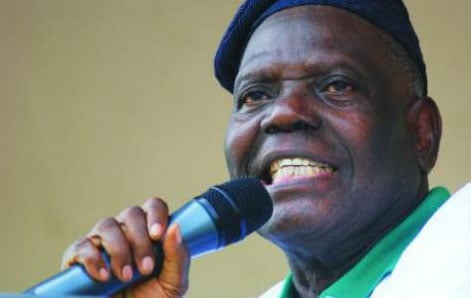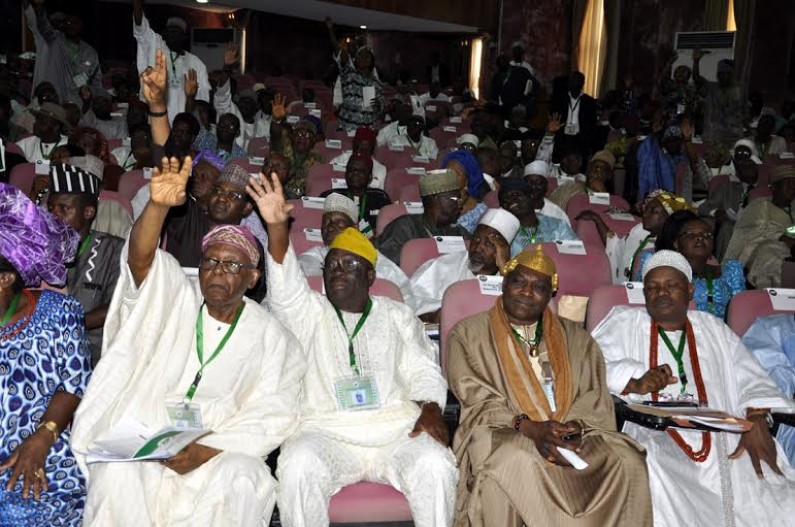By Tunji Olaopa
On Monday 10th of July, 2017, Ibadan School of Government and Public Policy – ISGPP in collaboration with the Pan-African University Press, Austin, Texas, holds a Symposium and Conversation on Higher Education in Nigeria with specific focus on the sub theme: Getting Our Universities Back on Track. The Symposium is bringing together critical voices, stakeholders and participants in the higher education sector in Nigeria around the issues which Professor Oluwafemi Mimiko has poignantly raised in his personal reflection on his vice chancellorship which will also be interrogated at the forum.
ISGPP seminars have, till date, serve as the critical intervention point for outlining, investigating and proposing crucial policy dialogues that motivate policy makers and government functionaries into alternative thinking about what can work and take Nigeria’s development drive further than it presently is. This contribution is therefore meant to provide a context for public engagement with what is meant to be a discourse that not only sets in motion a thinking process, but which output will no doubt have far reaching policy implication.
Anywhere on the globe, higher education is situated at the juncture of innovative dynamics, human capital development and national development or global progress. All over the world, universities are getting challenged by several global, regional and national developments that are either ideological or operational. Thus, higher education everywhere is getting drawn into the development equation in a manner that speaks to the necessary connection between the logic of human capital development and the operational efficiency of, say, the university. Universities came into existence to answer the need for research and for critical education that are deployed to specific needs. In other words, knowledge production that is initiated around higher education is often of the type that is dictated by the peculiar development needs of the society which generates its own unique mandate for its higher education. However, such local responsibilities of the universities must necessarily be squared with the imperatives for education, human capital and development created by global initiatives in higher education.
In fact, there is a ready-made role that is already created for universities in global development. In the first place, the world had a lot to be grateful to the universities for in the gradual but inexorable evolution of civilization and the template of modernity. And since the world is not in any sense static, then, the university and its knowledge production mandate has a lot to still contribute to our collective problematic in the world. Take an economic imperative, as a first instance. Universities constitute a source of revenue in that they higher education directly contributes immensely to national economies. For instance, it is reported that between 2007 and 2008, universities contributed more than ₤60 billion to the United Kingdom economy. But beyond this, issues like religious fundamentalism, climate change, regional and national wars, poverty, racism and bigotry, and so on, have continued to shape the contour of human relations and socioeconomic matters everywhere in a manner that challenge the kind of knowledge that is produced through higher education. Does such knowledge enable us to understand our world better and help us to be better able to relate with one another and resolve problems?
Advertisement
The challenge therefore derives from the kind of linkages, initiatives, collaborations and research frameworks that universities can generate across ideological, gender, religious affiliation, regional and national boundaries in a way that enable us confront our fears and predicaments. These collaborations are then meant to generate new knowledges, creative influences, political understanding, cross-cultural relations, economic paradigms and social dynamics that make us more human and more empowered to live well and meaningfully.
All these global imperatives, however, places some governance and operational structuration in the internal machinery of the university. The governance of a university is a very critical one to the success of that university. This is because governance encompasses the challenge of infrastructural development, staff auditing and welfare, trade unionism, and most importantly, the implementation of the vision and mission statements of the university. These are the issues that have been brilliantly outlined and critically discoursed in Professor Mimiko’s sterling book. Let us take one governance issue as an example. Nigerian universities, apart from the private ones, are forced to engage with the issue of trade unionism, and especially the Academic Staff Union of Universities (ASUU) industrial dispute. This has been going on for a long while and has been the cause of not only some terrible loss in manpower and research hours, but more critically the short-circuiting of the destinies of the students who inevitably becomes receptacle for the power play between the university management and ASUU. The issues of trade unionism and industrial action are two critical issues I had to confront as a permanent secretary. I have written a lot about this item as a critical factor in development. And I consider them crucial because of the role they play in the evolution, or otherwise, of a productivity paradigm that is fundamental to Nigeria’s national development.
The issue at play is what I have called an adversarial dynamics that constantly pitch the trade unions against management within a collective bargaining framework that prevents compromise of any sort. On the one hand, you have the trade unions who come to the table with some rigid understanding of what is wrong, what is at stake and how their understanding of their members’ welfare can be achieved. On the other hand, you also have the organisation’s management standing at the other side of the table and negotiation with a different, and often mutually exclusive, sets of understanding and mandates. At the end of the day, the organisation collapses under the weight of strikes. We have all witnessed the agonies attached to, say, PENGASSAN and NUPENG, Nigeria’s major oil industry trade unions, going on strike and throwing the entire nation into productivity confusion. I am not sure which is worse between the industrial actions in higher education in Nigeria and those in the economy. I am certain that both have taken some terrible tolls on the health of the nation.
Advertisement
I find another issue in the internal operational logic of higher education terribly disconcerting. And this is the obvious gap between research, pedagogy and the social reality within which the university is enmeshed. The universities in Nigeria are essentially “ivory towers” whose knowledge production is defined by rarefied esotericism. In other words, researchers, academicians and scholars mostly speak and write over the head of Nigerians, especially in obscure journals and conferences. The false gap that has been erected between theory and practice has infiltrated our own experience. Thus, the researchers and theoreticians stand aloof within the rarefied disciplinary contexts spawning theories and debates that lack experiential inputs. We do not want to dirty our hands. And the practitioners equally stay far away and sneer contemptuously at the aridity of theory. Once theory is divorced from practice, it seems to me that higher education has lost its critical mandate derivable from the task of knowledge production.
At the ideological level, higher education dynamics, at both the national and the global levels, has to inevitably confront the educational logic of global capitalism and its hegemonic imperatives. One of those imperatives involves the conditioning of disciplines to the production logic of capitalism. There is no university that is not presently being forced to confront capitalism at this level. This also automatically affects the management and governance of higher education everywhere. Thus, for instance, the perception that each university have of the humanities and the social sciences (HSS) becomes very strained and unflattering. Many humanities disciplines are folding up in the West because capitalism decrees it.
When you now add all these operational and ideological dynamics to the specific developmental, social, political and economic frameworks that define the postcolonial, especially in Africa, what you get is a significant understanding of higher education that stands disconnected from the imperatives of development. There is a sense in which we can say that the historical development of European societies is incomplete if the evolution of the university system is not fathom into it. This is because higher education played a significant role in the development of the human capital that led to the transformation of the socioeconomic dynamics in those societies. If those societies we now refer to as ‘developed’ needed higher education to achieve that development status, and they still pay critical attention on the state of their universities, we cannot say any less for third world countries. This is more so especially for African states. Why is the university crucial for the development profile of “developing” countries?
The answer is simple: A university is the source of research and learning that serves as the recruiting ground for critical ideas about any society. Since the university is located within a specific site, its primary research focuses are constituted by the challenges of that site. Any Nigerian university, for instance, has the whole of Nigerian and her postcolonial plural challenges as the source of research consideration. These research focuses and the ideas generated from them ought to constitute a rich complement for policy programmes. On the other hand, the university is also the source of the human capital that feeds a nation’s development drive. This then means that the state of the university system ought to be one of the utmost policy concerns of the leadership of any state. Nigeria is not an exception in this regard. And this is where we pick up again the relevance of Professor Oluwafemi Mimiko’s book. The title already tells us the objective of the book and the vision it encompasses.
Advertisement
And so, from a personal perspective, we have a loaded trajectory and argument which Professor Toyin Falola, in the Foreword, calls the “historicity of university experience.” One cannot but deal with this book. And this is due essentially to its comprehensive understanding of the multidimensional issues involved in the running and the reinvention of a typical postcolonial university in Nigeria. The Adekunle Ajasin University, in Akungba Akoko, Ondo state, is a veritable template for examining and interrogating almost all other universities in Nigeria. The issues that dodged its full-fledged manifestation as a functional institution are those that essentially constrain higher education and its disconnection to the development challenges in Nigeria. Staff welfare, student unrest and sundry pressures, trade unionism, academic freedom, infrastructural development, modernization, capacity building, quality assurance, etc., all these receive a sustained investigation from a vice chancellor who was in the eye of the storm for the five years he was at the helm of affairs.
In chapter thirteen of the book, Professor Mimiko touched on an issue which has remained very dear to my understanding of the mandate of the universities—the town and gown relationship and the effect that universities ought to have on their host society. The best way to look at this interaction goes beyond the mere invitation of external non-academics to relate with the institution in some seminars and workshops. On the contrary, the university-host relationship ought to get to the point of a dynamic interrelationship that ensures the mutual integration of theory and practice. In this sense, universities facilitates staff regeneration through injecting into the system those critical personnel who have become distinguished, in industry, arts, public service, private sector, sport, entertainment and the cultural industries. And conversely, this relationship also involves the converse injection of the university personnel into the world of industry, the public and the private sector.
The task of reinventing Nigerian universities must commence from a historical juncture. Global imperatives would make no sense if higher education in Nigeria is not first understood and then extricated from within the context of historical burden and circumstances which limit and delimit it. the burden of Nigerian history sits heavily on the flowering of higher education in Nigeria. And it is only our collective and concerted efforts, in the mold of Professor Mimiko’s commendable intervention, which can enable us get our universities back on track.
Dr. Olaopa is the executive vice chairman, Ibadan School of Government and Public, Policy (ISGPP), Ibadan
Advertisement
Advertisement
Views expressed by contributors are strictly personal and not of TheCable.






